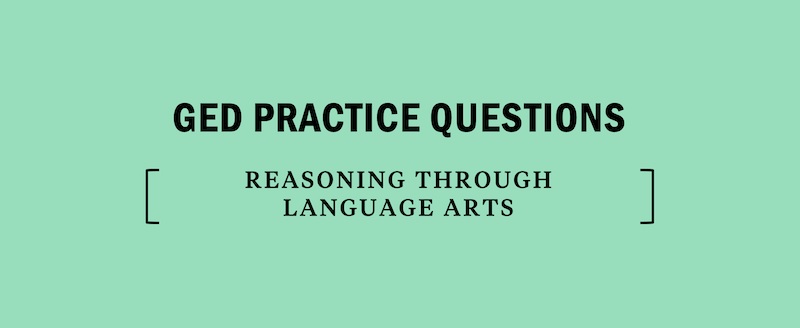The GED Reading Test is designed to assess your reading comprehension skills and ability to analyze written texts. It consists of multiple-choice questions based on passages from various genres, including fiction, non-fiction, poetry, and workplace documents. To succeed in the test, it's essential to understand its structure, content, and scoring criteria.
Develop Strong Reading Habits
To excel in the GED Reading Test, it's crucial to develop strong reading habits. Here are some tips to enhance your reading skills:
- Read Widely: Engage with a variety of texts, including books, newspapers, magazines, and online articles. Expose yourself to different writing styles, genres, and subjects to expand your vocabulary and comprehension abilities.
- Active Reading: Practice active reading techniques, such as highlighting key points, making notes, and summarizing sections. Actively engage with the text by asking questions, making predictions, and evaluating the author's arguments.
- Time Management: Improve your reading speed and efficiency by setting aside dedicated time for reading practice. Gradually increase your reading pace while maintaining comprehension.
Analyzing Passages Effectively
The GED Reading Test requires you to analyze and interpret written passages. Here are some strategies to enhance your passage analysis skills:
- Preview the Text: Before reading a passage, quickly scan the headings, subheadings, and the first and last sentences of each paragraph. This preview gives you a general idea of the content and structure of the passage.
- Identify the Main Idea: Determine the main idea or central theme of the passage. Look for repeated ideas, key arguments, and supporting evidence. Understanding the main idea helps you answer questions related to the passage's overall meaning.
- Pay Attention to Details: While understanding the main idea is crucial, pay attention to specific details within the passage. These details often serve as evidence or examples to support the author's claims or arguments.
- Recognize Text Structure: Identify the organization and structure of the passage. Look for signal words like "first," "then," "on the other hand," or "finally" to understand how ideas are connected and how the author presents information.

Mastering Question Types
The GED Reading Test includes various question types that assess different reading skills. Here are some common question types and strategies to tackle them effectively:
- Main Idea Questions: These questions ask about the primary purpose or central message of the passage. To answer them accurately, focus on the passage's overall argument or theme and eliminate answer choices that are too specific or unrelated.
- Inference Questions: Inference questions require you to draw conclusions based on the information presented in the passage. Look for implicit meanings, implications, or logical deductions within the text. Be cautious about selecting answer choices that go beyond the information provided.
- Supporting Detail Questions: These questions assess your understanding of specific details or evidence mentioned in the passage. Refer back to the relevant section and look for direct references, examples, or descriptions that support the author's claims.
- Vocabulary Questions: Vocabulary questions test your understanding of words or phrases used in the passage. Use context clues, such as surrounding words, sentence structure, or the author's tone, to determine the meaning of unfamiliar words. If unsure, eliminate answer choices with incorrect or irrelevant definitions.
Effective Test Preparation Strategies
To succeed in the GED Reading Test, it's essential to prepare effectively. Here are some strategies to optimize your test preparation:
- Practice with Sample Tests: Familiarize yourself with the test format and question types by practicing with official GED sample tests. These practice tests will help you become comfortable with the time constraints and develop strategies for answering different types of questions.
- Review Reading Strategies: Study and implement effective reading strategies, such as active reading, summarizing, and annotating. Practice applying these strategies to various texts to improve your reading comprehension skills.
- Build Vocabulary: Enhance your vocabulary by regularly learning new words and their meanings. Use flashcards, vocabulary apps, or online resources to expand your word bank. Focus on words frequently encountered in academic texts.
- Seek Additional Resources: Explore additional study materials, such as GED prep books, online courses, or tutoring services. These resources provide comprehensive guidance, additional practice exercises, and expert insights to further improve your reading skills.
- Time Management: Develop a time management strategy for the test. During practice sessions, simulate the test conditions and aim to complete each passage within the allotted time. Practice pacing yourself to ensure you have enough time to read and answer all the questions.
By implementing these strategies and dedicating sufficient time to practice and preparation, you can increase your chances of passing the GED Reading Test with confidence.
Please note that this article is provided for informational purposes only, and it's important to consult official GED study materials and resources for the most accurate and up-to-date information on the test.
Comments (0)